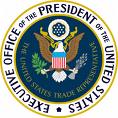 On Friday, the U.S. Trade Representative announced its Section 301 investigation of China’s “acts, policies, and practices related to technology transfer, intellectual property, and innovation.” As part of the investigation, it is accepting comments from the public, which are due by September 28. The initiation of the investigation follows President Trump’s August 14 memo on intellectual property, which noted that “China’s conduct “may inhibit United States exports, deprive United States citizens of fair remuneration for their innovations, divert American jobs to workers in China, contribute to our trade deficit with China, and otherwise undermine American manufacturing, services, and innovation.”
On Friday, the U.S. Trade Representative announced its Section 301 investigation of China’s “acts, policies, and practices related to technology transfer, intellectual property, and innovation.” As part of the investigation, it is accepting comments from the public, which are due by September 28. The initiation of the investigation follows President Trump’s August 14 memo on intellectual property, which noted that “China’s conduct “may inhibit United States exports, deprive United States citizens of fair remuneration for their innovations, divert American jobs to workers in China, contribute to our trade deficit with China, and otherwise undermine American manufacturing, services, and innovation.”
The full announcement of the investigation is here.
The announcement specified the following as the initial focus of the investigation:
First, the Chinese government reportedly uses a variety of tools, including opaque and discretionary administrative approval processes, joint venture requirements, foreign equity limitations, procurements, and other mechanisms to regulate or intervene in U.S. companies’ operations in China, in order to require or pressure the transfer of technologies and intellectual property to Chinese companies. Moreover, many U.S. companies report facing vague and unwritten rules, as well as local rules that diverge from national ones, which are applied in a selective and non-transparent manner by Chinese government officials to pressure technology transfer.
Second, the Chinese government’s acts, policies and practices reportedly deprive U.S. companies of the ability to set market-based terms in licensing and other technology-related negotiations with Chinese companies and undermine U.S. companies’ control over their technology in China. For example, the Regulations on Technology Import and Export Administration mandate particular terms for indemnities and ownership of technology improvements for imported technology, and other measures also impose non-market terms in licensing and technology contracts.
Third, the Chinese government reportedly directs and/or unfairly facilitates the systematic investment in, and/or acquisition of, U.S. companies and assets by Chinese companies to obtain cutting-edge technologies and intellectual property and generate large-scale technology transfer in industries deemed important by Chinese government industrial plans.
Fourth, the investigation will consider whether the Chinese government is conducting or supporting unauthorized intrusions into U.S. commercial computer networks or cyber-enabled theft of intellectual property, trade secrets, or confidential business information, and whether this conduct harms U.S. companies or provides competitive advantages to Chinese companies or commercial sectors.
Reuters reports that China has responded via an unnamed ministry spokesperson:
The United States’ disregard of World Trade Organization rules and use of domestic law to initiate a trade investigation against China is irresponsible, and its criticism of China is not objective,” an unnamed ministry spokesman said.
“China expresses strong dissatisfaction with the United States’ unilateral protectionist action. We urge the U.S. side to respect the facts, … respect multilateral principles, and act prudently,” the official said, adding that Beijing would take “all appropriate measures, and resolutely defend China’s lawful interests”.
It certainly seems that any retaliation unilaterally applied by the U.S. via Section 301 pf the U.S. Trade Act would lead to a dispute at the World Trade Organization. In the WTO’s Understanding on Dispute Settlement, Members agree to settle disputes through the organization’s Dispute Settlement process, rather than unilaterally. In 1999, a WTO Panel reviewed Section 301, and determined that any sanctions imposed as a result of a Section 301 review would need to be applied through the WTO Dispute Settlement Process.




